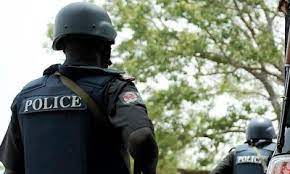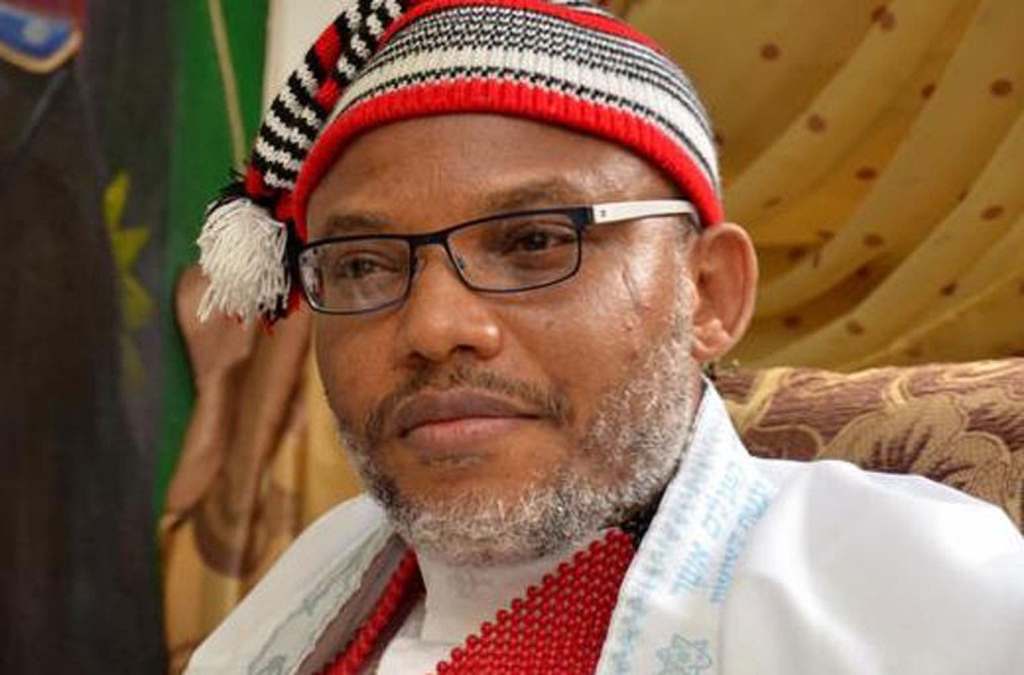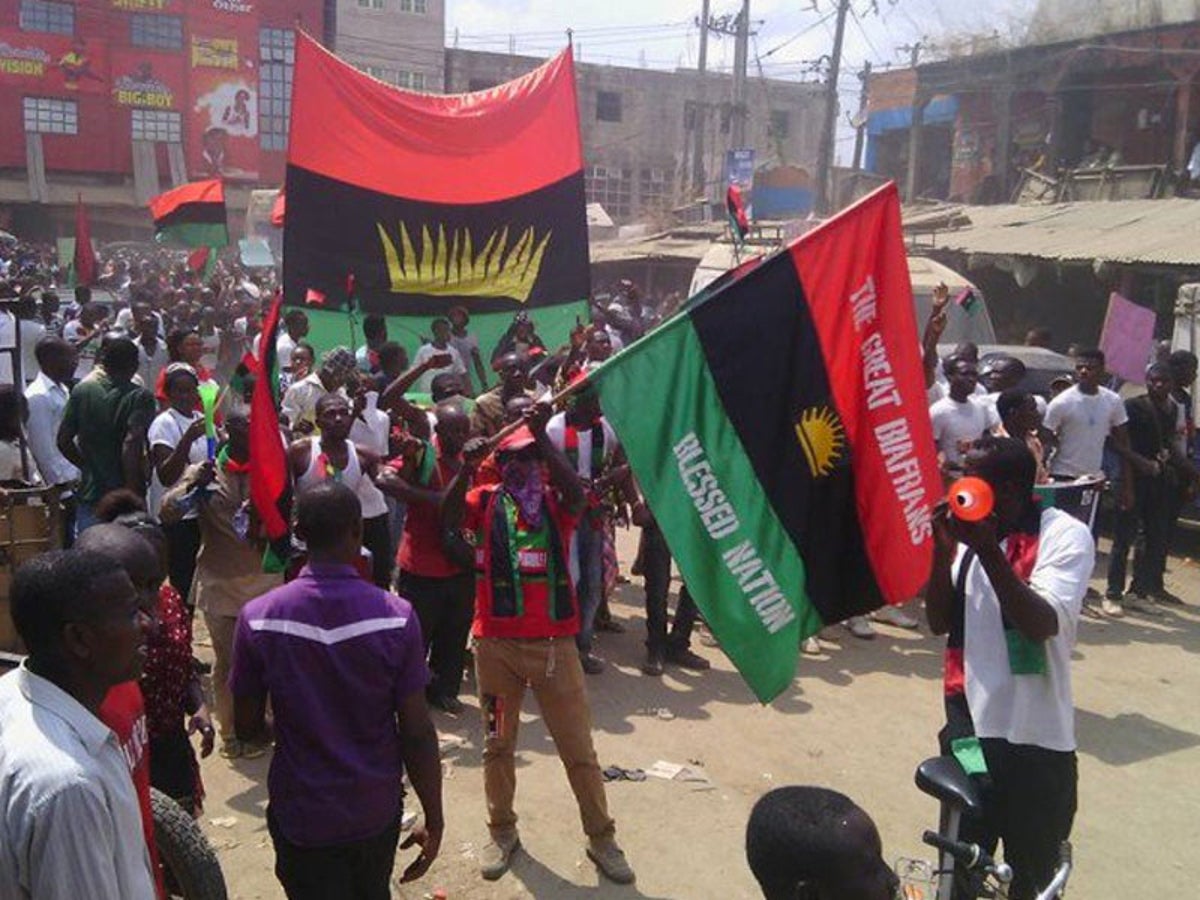Defence/Security
IPOB sit-at-home order cripples socio-economic activities in South-East

Human and commercial activities were grounded in the South-Eastern states on Monday as residents obeyed the sit-at-home order by the proscribed Indigenous People of Biafra (IPOB).
In Umuahia, the Abia capital, and adjoining villages, residents stayed back home, leaving the streets, especially the ever-busy city centre, known as Isigate, completely deserted.
Government offices, schools, banks, shops, business centres, markets, malls and plazas and petrol outlets remained closed.
Also, private and commercial vehicles kept off the roads, leaving the metropolis like a ghost town.
A cross-section of the residents expressed mixed feelings over the IPOB order.
While some said it was necessary to honour millions of lives lost during the Nigerian civil war, others said they complied to avoid being attacked by hoodlums or those monitoring compliance.
A commercial bus driver, Mr Kingsley Friday, said he decided to stay at home because of the prevailing security challenges in the state.
Friday said he did not want to be a victim of circumstance.
Also, a hairdresser at Ubakala, in the outskirts of Umuahia, Mrs Chidinma Ogbonna, said she wanted to go to her salon but could not because there were no vehicles on the road.
Ogbonna, who said she depended on the daily earnings from the shop to fend for her family, regretted that the sit-at-home would “short” her daily income.
A shop owner at the popular Isigate in Umuahia, Mr Geoffrey Ugochukwu, told NAN that traders were seriously warned before hand not to open their shops on Monday.
“I deal in provisions and I normally leave home early, but today I have to stay home with my family because nothing is worth my life,” he said.
A tricycle operator, Mr Kelechi Kanu, said he went out early in the morning for business but was disappointed because there were no passengers on the road.
Kanu said he could not move freely on the roads, pointing out that most of the streets were blocked by boys playing street football.
Meanwhile, heavily armed policemen and soldiers were seen keeping surveillance in Umuahia metropolis and its environs, without molesting residents.
The situation is not different in Imo, where socio-economic activities were also at a standstill amidst heavy security presence in major cities and towns, including Owerri, the state capital.
Markets, roadside shops, malls and filling stations were not open, while suburbs near Owerri blocked all their entrances to ward off invasion by stranger elements.
Areas with heavy security presence include Akachi, Okigwe and Dick Tiger Roads, Imo State University Junction, Control Junction, Airport Junction, Obiangwu-Ngor Okpala and Amakohia- Akwakuma Flyover and the World Bank/Umuguma Junction.
NAN learnt that military helicopters were seen hovering around the Sam Mbakwe Cargo Airport as part of the security surveillance in the area.
Some residents, who spoke with NAN on the development, said they obeyed the order to be on the safe side.
A roadside trader, Mrs Ngozi Ukpabi, said: “I have not displayed my wares today. Infact my table is upside down so that I will not be labeled a saboteur.”
Another trader who live around Urata, a suburb of Owerri, said she could not display her wares for fear that IPOB members might be monitoring compliance in the area.
A tailor, Mr Francis Udoh, said he obeyed the order because he noticed that everyone around his shop complied.
Udoh also said that opening his shop for business might be an effort in futility, pointing out that clients might not readily come around out of fear.
Also, respondents from Ahiazu and Aboh Mbaise areas of the state, said that while there was no vehicular movement, helicopters were seen flying through the area periodically.
Respondents from Mbaise area of Imo said that Sunday’s shootout between the police and hoodlums caused uneasy calm in the area, hence people were afraid to come out on Saturday.
Mr Chimezie Odom from Nnarambia in Ahiazu Mbaise to NAN in a telephone interview that businesses were shut in the area with no vehicular movement.
Mr Charles Osuagwu from Aboh Mbaise said the streets were empty and quiet, adding that there was heavy presence of security operatives in the area.
However, a commuter-bus driver, Mr Ebuka Felix, expressed displeasure with the situation, saying he had lost the day’s income because of the order.
In Awka, the Anambra capital, residents also complied with the directive as hotels, restaurants snd markets in the city and surrounding villages remained closed.
Also, schools, government offices and banks did not open, in spite of the deployment of heavy security in the area.
NAN gathered that businesses in Onitsha, the commercial nerve centre of Anambra, were completely shutdown.
A resident of the city, Mr Okey Ejide, told NAN in a telephone interview that there was no movement of persons and vehicles in the area.
Ejide said the popular Main Market, Onitsha, along with Ose, Ochanja, Relief and Bridgehead markets did not open for business.
“Even supermarkets, hair-dressing salons, mechanic workshops and roadside vulcanisers, amongst other artisans, also joined the sit-at-home order,” he said.
The people urged the Federal Government to address the alleged marginalisation of the southeast to give the zone a sense of belonging and ensure peace and security of lives and property.
Defence/Security
Why Christians Are Being Targeted in Nigeria — Majeed Dahiru Speaks

By: Fabian Apechihin
Public affairs analyst, Majeed Dahiru, has weighed in on the reports of targeted killings of Christians in Nigeria, insisting that President Bola Tinubu cannot be accused of religious bias or complicity in the country’s security challenges.
Speaking on Channels Television’s Politics Today, Dahiru said President Tinubu has shown a strong commitment to national security and unity since taking office.
“President Tinubu has not, by any stretch of the imagination, been accused of religious bigotry or having sympathy for Islamist jihadist terror groups,” he stated.
According to him, the president has mobilised the armed forces and other security agencies to combat insurgency and restore stability in violence-prone regions.
Dahiru acknowledged that attacks on Christians in some parts of the country remain worrisome but maintained that there has been visible progress in the fight against terrorism and banditry.
“Absolutely not. You can criticise him for every other thing, but not for religious bias. There is no way he would sit idly as Commander-in-Chief and allow or encourage the killing of Christians,” he added.
His comments follow heightened international concern over alleged religiously motivated killings in Nigeria.
On October 31, former U.S. President Donald Trump described the situation as a “mass slaughter,” warning that Christianity faces an existential threat in Nigeria.
Trump also directed Congressman Riley Moore and House Appropriations Chairman Tom Cole to investigate the reported killings, saying:
“I am hereby making Nigeria a ‘country of particular concern.’ But that is the least of it. When Christians, or any such group, are slaughtered as is happening in Nigeria (3,100 versus 4,476 worldwide), something must be done!”
However, the Nigerian government has dismissed the claims of a “Christian genocide,” insisting that security forces are confronting all forms of criminality without ethnic or religious bias.
Defence/Security
Genocide Allegations: Group Urges Tinubu to File Treason Charges Against Nigerians Who Reported Country to Trump

By: Fabian Apechihin
The National Patriotic Elders for Peace and Harmony of Nigeria (NPEPHN) has called on President Bola Tinubu to file treasonable felony charges against Nigerians who allegedly reported cases of Christian massacres to the United States government.
In a statement issued on Friday, the group’s president, Dr. Bature AbdulAziz, condemned the actions of those he described as “unpatriotic elements”, insisting that their reports to foreign powers amounted to a betrayal of national sovereignty.
“Nigeria is a sovereign nation with adequate laws to address the concerns of its citizens,” AbdulAziz said. “Reporting the country to another nation is nothing short of treasonable felony, and those responsible must be prosecuted.”
The elders also urged Northern governors to urgently convene a regional security meeting involving religious and ethnic leaders to address the recurring violence in the region and to present verified data on casualties to counter “false narratives” being circulated internationally.
According to AbdulAziz, the silence of Northern leaders amid U.S. President Donald Trump’s threat of military intervention in Nigeria was unacceptable. He advised them to compile accurate records of attacks and present factual evidence before relevant authorities.
“The claim that over 500,000 Christians have been killed must be supported with verifiable data,” he said. “The U.S. government knows that most of the victims of insecurity in Nigeria are Muslims, not Christians.”
Citing data from various conflict-prone regions, AbdulAziz maintained that 75 percent of victims of terrorism and communal violence since 1999 have been Muslims, noting that most of the affected areas — including Kaduna, Zamfara, Kebbi, Sokoto, Kano, Jigawa, Bauchi, Borno, and Yobe — are predominantly Muslim communities.
“These are the towns and villages that have been burned, destroyed, and displaced repeatedly,” he added.
While acknowledging that parts of the North Central zone — including Benue, Plateau, Taraba, and Kwara — have a higher Christian population, AbdulAziz said most of the conflicts in those states stem from farmer-herder clashes, where both sides suffer heavy losses.
“In many cases, Muslim herders are attacked and displaced by host communities. Their families and livestock are killed, yet no one talks about those casualties,” he noted.
AbdulAziz faulted the U.S. government for allegedly accepting “false genocide claims” without conducting independent investigations.
“It is shocking that the United States would believe such fabrications despite its advanced intelligence systems. We suspect there is a hidden political motive — possibly linked to Nigeria’s stance on the Israel-Palestine issue at the United Nations, or our government’s growing alignment with France and other nations,” he alleged.
The elder statesman reminded Donald Trump of Nigeria’s historic role in promoting peace and democracy across Africa.
“Any attack on Nigeria would destabilize several African nations that depend on her strength. We therefore appeal to President Trump to reconsider his decision,” AbdulAziz stated.
The group reiterated its support for President Tinubu’s administration and urged Nigerians to unite in defending the country’s sovereignty from “external manipulation and internal sabotage.”
Defence/Security
Retired ACP Sheriff Rabiu Blasts Northern Clerics Over Hate Preaching, Almajiri Menace

By: Fabian Apechihin
A retired Assistant Commissioner of Police, Sheriff Abubakar Rabiu, has sparked nationwide debate with a hard-hitting open letter accusing some Northern Islamic clerics of fueling division and violence through incendiary sermons.
The strongly worded message, which has gone viral across WhatsApp groups, mosque forums, and security networks, condemned what Rabiu described as the “toxic preaching culture” that has poisoned the minds of Northern youths and laid the foundation for extremist movements like Boko Haram.
“Nobody has the key to Jannatul Firdausi except Allah,” Rabiu wrote. “Yet any Tom, Dick, and Harry with shallow knowledge of Islam grabs a microphone and calls our Christian brothers ‘Arna’, ‘Kafurai’, or ‘infidels destined for hell’. This is not Islam. This is madness — and this madness gave birth to Boko Haram.”
Rabiu, who once served as Chief Security Officer to former Adamawa Governor Murtala Nyako, said Nigeria’s greatest internal threats are hate preaching and the Almajiri system, which he described as a breeding ground for radicalization.
“An idle mind is the devil’s workshop. Those street children begging today are tomorrow’s recruits and foot soldiers for every terrorist group promising paradise for killing ‘infidels’,” he warned.
Turning his criticism inward, Rabiu questioned why Northern leaders were quick to blame Donald Trump for placing Nigeria on a religious freedom watchlist while ignoring the behaviors that justified it.
“Instead of shouting that Trump is Islamophobic, let’s ask ourselves why America put us on that list,” he said. “In Saudi Arabia, Qatar, or the UAE, try preaching hate from a pulpit — you’ll be arrested the same day. But here in secular Nigeria, they insult Christians from Friday to Friday and nobody stops them.”
Rabiu urged President Bola Tinubu to take decisive action by directing the National Assembly, Northern governors, and local government councils to enact and enforce laws criminalizing:
- The use of derogatory religious labels like arne or kafir
- Street begging by children under the Almajiri system
- Hate speech disguised as preaching
“Do this sincerely,” he cautioned, “and America will see that we are serious. Fail, and we invite the same war machinery that turned Afghanistan and Iraq into graveyards.”
The retired officer ended with a nostalgic appeal for unity:
“If we implement these measures, Nigeria will return to the peace we had in the 1970s — when Muslims and Christians drank from the same cup, married each other’s sisters, and buried each other’s dead.”
By Thursday evening, Rabiu’s open letter had been shared in over 40 Northern WhatsApp groups, drawing support from youth leaders and religious moderates alike.
A community leader in Kano’s Hotoro suburb said, “This is the first time a respected Muslim officer has spoken this boldly. If our governors ignore him, they are the real enemies of Islam.”
Although the Kano Hisbah Board declined to comment officially, a senior commander who spoke off record admitted, “Mallam Sheriff said what many of us whisper privately. The question is — who will bell the cat?”
As Northern Nigeria grapples with rising tension over the message, one fact remains clear: a retired police officer has drawn a bold red line against radical preaching — and the ripple effect may reshape the region’s religious discourse for years to come.
-

 Uncategorized5 years ago
Uncategorized5 years agoFG, states urged to harness flooding for ranching, others with technology – Agbaje
-

 Headlines10 years ago
Headlines10 years agoBreaking: EFCC seals Borno House of Assembly, as Hon members take to their heels
-

 News11 years ago
News11 years agoNigeria Security Operatives Stage Manhunt For Homosexual Perpetrator
-

 News9 years ago
News9 years agoHow 21-year-old Girl fled community over accusation of lesbianism
-

 News10 years ago
News10 years agoYobe Gov Moves Against Deputy
-

 Opinion7 years ago
Opinion7 years ago7 signs she has friend zoned you
-
Technology4 years ago
Online job placement company headhunts women
-

 Headlines10 years ago
Headlines10 years agoBorno Dep Gov Abducts Another Church Leader











